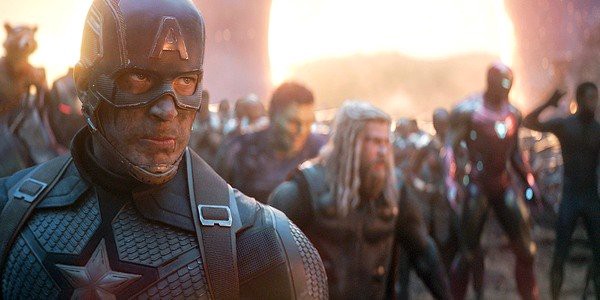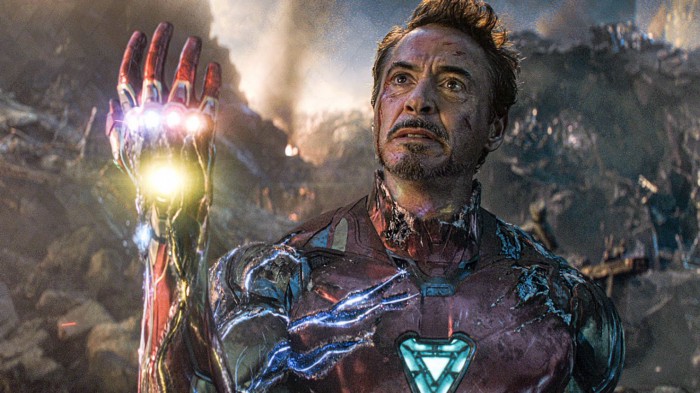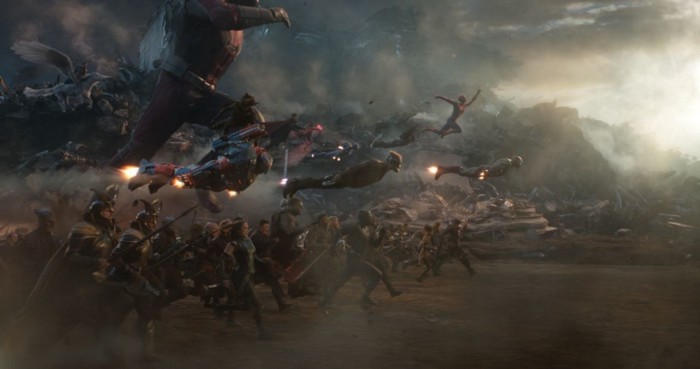The Back-Up Plan (2010): A Heartfelt Rom-Com with Depth
Jennifer Lopez leads the story as Zoe, a determined woman who opts for artificial insemination after a string of failed relationships. Lopez's portrayal adds depth and warmth to Zoe
Incluvie Foundation Gala - Learn More


Author: Nathanael Molnár, originally published [4/26/2020]
It was Friday, April 26th, 2019. I was sitting in the AMC Dolby Theater, my friends on either side of me. Everyone in the theater was buzzing, excited. A couple of people walked in with light-up arc reactors pinned to their chests. The lights came down, and the iconic Marvel Studios theme blasted through the theater. The audience cheered; everyone was giddy and ready for what we had all been patiently waiting for since May 2nd, 2008. Avengers: Endgame, the fulfillment of the promise of the Marvel Cinematic Universe.
It’s strange to think that Endgame came out a full year ago. I’ve been a fan of the MCU from the very beginning. As a life-long comic book fan, following the unfolding and the blossoming of this entire cinematic universe has been truly magical. It’s something that I’m still surprised we get to see and enjoy. I believe the MCU redefined the comic book movie genre. Comic book movies existed before the MCU and were successful before it. However, under the meticulous leadership of Kevin Feige, the MCU gave us something radically different (current list of all MCU films 2021).
It brought to life the long-form storytelling of comic books, the character arcs that span years, and the meshing of different worlds. In the medium of film, the MCU captured the feeling of reading comic books spanning decades, following characters in their own stories, and then following them into their larger team-ups. Sure, there were the X-Men movies that revitalized the genre when Batman & Robin had essentially killed it. Spider-Man brought whimsy back into the genre, and Batman Begins established realism. It was the MCU that brought consistent continuity, long-form story arcs, and a balance of bombastic spectacle action and genuine character growth and development.
As successful as the MCU became, as popular as The Avengers or Guardians of the Galaxy or Black Panther became, the entirety of this 22 movie experiment hinged on its conclusion. If the MCU didn’t deliver a satisfying conclusion to what this entire thing had been building towards, everyone would have walked away disappointed. Sure, we would still revere the individual films we loved, but the MCU as a whole would have far less significance if Endgame had dropped the ball. On April 26th, 2019, Endgame not only did not drop the ball, but it delivered for fans so much that it went on to become the highest grossing movie of all time!

Full disclosure, Endgame is not one of my top favorite MCU films. I think it’s a great movie, even if I prefer Avengers: Infinity War. That doesn’t take anything away from the brilliant execution of different aspects of the film. The first hour or so is mostly character development — a somber look at a post-snap world that isn’t that unlike the restlessness of the outside world amidst COVID-19. In Infinity War, our heroes lost. Half of the population of the entire universe was decimated because the Avengers were not working together. In the universe’s time of need, the Avengers weren’t there, and that fact haunts them for five years.
Before the giant finale of the film, there is very little action. It is all about character development, which is what makes the MCU as great as it is. These film aren’t mindless action movies; they take the time to grow and change their characters. The movie’s second act then becomes more of a heist thriller, as they try to reclaim the infinity stones through various points in time. Even this is done to further the characters: Tony meets his father and learns some things about himself, Steve remembers his love for Peggy setting up his decision in the end, and Thor goes through a crisis that helps him learn that he is still worthy. Everything that happens to our characters is in service of pushing them forward.
Of course, this is all building to a breathtaking conclusion, when all of the snapped heroes return in what is now simply referred to as “the portal scene.” This scene is the promise of the MCU; to see every single character on screen fighting in the biggest battle possible. It is a moment that I don’t think can be replicated in any other film in any other franchise. I don’t mean in terms of scale, but rather in terms of how earned the payoff is. From the first frame of Iron Man, this is what we have been working towards.

The success of Avengers: Endgame truly demonstrates the mainstream popularity of comic book movies and the effectiveness of the MCU. In its opening weekend, Endgame made $357 million domestically alone, destroying Infinity War’s previous record of $257 million. That one weekend, worldwide, it made $1.2 billion. It went on to become the highest-grossing movie of all time with $2.797 billion, beating Avatar by $7 million. Avatar had held that record for ten years.
What we witnessed a year ago was history. At some point, we know another movie will come along that will make more opening weekend, as hard as it is to imagine. Endgame will eventually be dethroned as the highest-grossing movie of all time. What we will never see again is a movie beating the record for biggest domestic opening by $100 million. Although possible, it is unlikely that we will see another movie make as much money as Endgame did, as quickly as it did. These numbers show the investment of the general movie-going audience in the Marvel Cinematic Universe, and the overall satisfaction in this film.
The Marvel Cinematic Universe isn’t over. Black Widow is coming out later this year. We have new films like Eternals and Shang Chi and the Legend of the Ten Rings. We also have sequels such as Thor: Love and Thunder and Black Panther 2. There is a lot to look forward to with the MCU. The great thing being that we have a lot of people of color and women-led movies coming, as well as LGBTQ+ representation. This will also be expanded upon even more with the congruent Disney+ series that are on the horizon. While the MCU should have had more diversity earlier than it did, the floodgates have seemingly been opened with the movies going forward.
The future of the MCU may lead to movies that are better or worse than what we have gotten so far. It may have bigger highs or steeper lows. Regardless of what the future may bring, the satisfaction of this 22 movie arc beginning with Iron Man and concluding with Avengers: Endgame 11 years later will always be its own special thing. There were definitely ups and downs. There were strong points and weak points. But to have Tony Stark, played by Robert Downey Jr., from the very beginning of Iron Man and to watch him grow and change into the man who sacrifices himself to save the universe at the end of Avengers: Endgame is truly extraordinary.

In 2015, I did a 20 hour marathon with a friend in preparation for Avengers: Age of Ultron. We started Iron Man at 2pm on Friday and finished Guardians of the Galaxy around 10am on Saturday. It was so much fun, but part of the fun was seeing the build-up across so many movies. I imagine future generations of film fans will get to start with Iron Man and watch all the way through to Endgame and have an experience on a whole other level. They probably won’t be watching them all in a row, but to experience the full story without having to wait years like we did will be something truly unique.
I am incredibly envious of those who get to experience all of this for the first time, but at the same time they will be envious of us; those who experienced it as it happened. Those of us who got to see them all in theaters, opening night, having spent years speculating and theorizing what might happen next. This is our Star Wars. People my age may not have had the privilege of experiencing those films in real-time, but we got to experience the MCU. Now we get to pass it off to a new generation of film fans.
One year later, Avengers: Endgame is the biggest movie of all time. It was one of the most talked-about and anticipated films ever. It was a satisfying and thrilling conclusion to one of the grandest film experiments in history. One year later, Avengers: Endgame is the shining example of what comic book movies can be.
